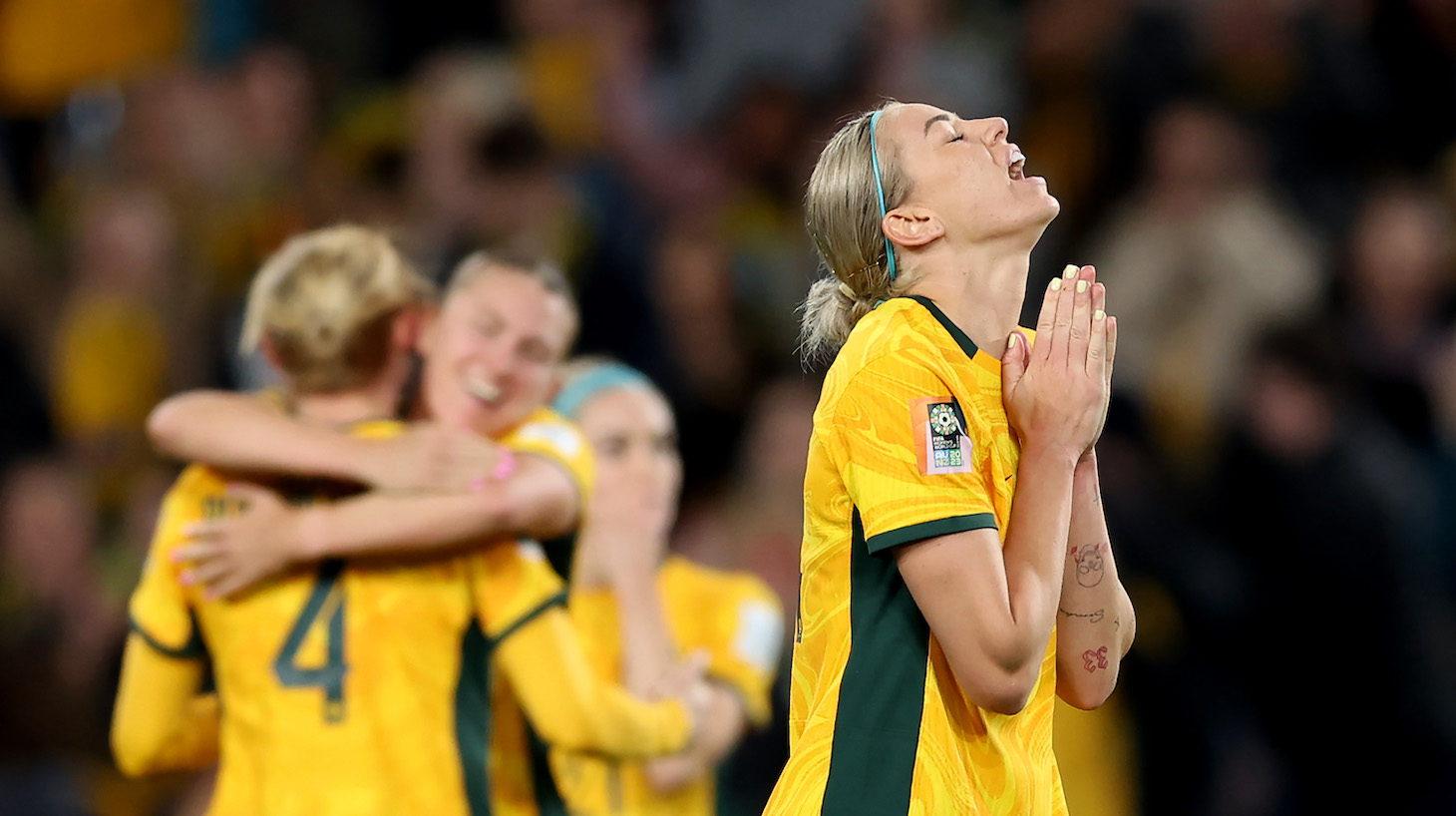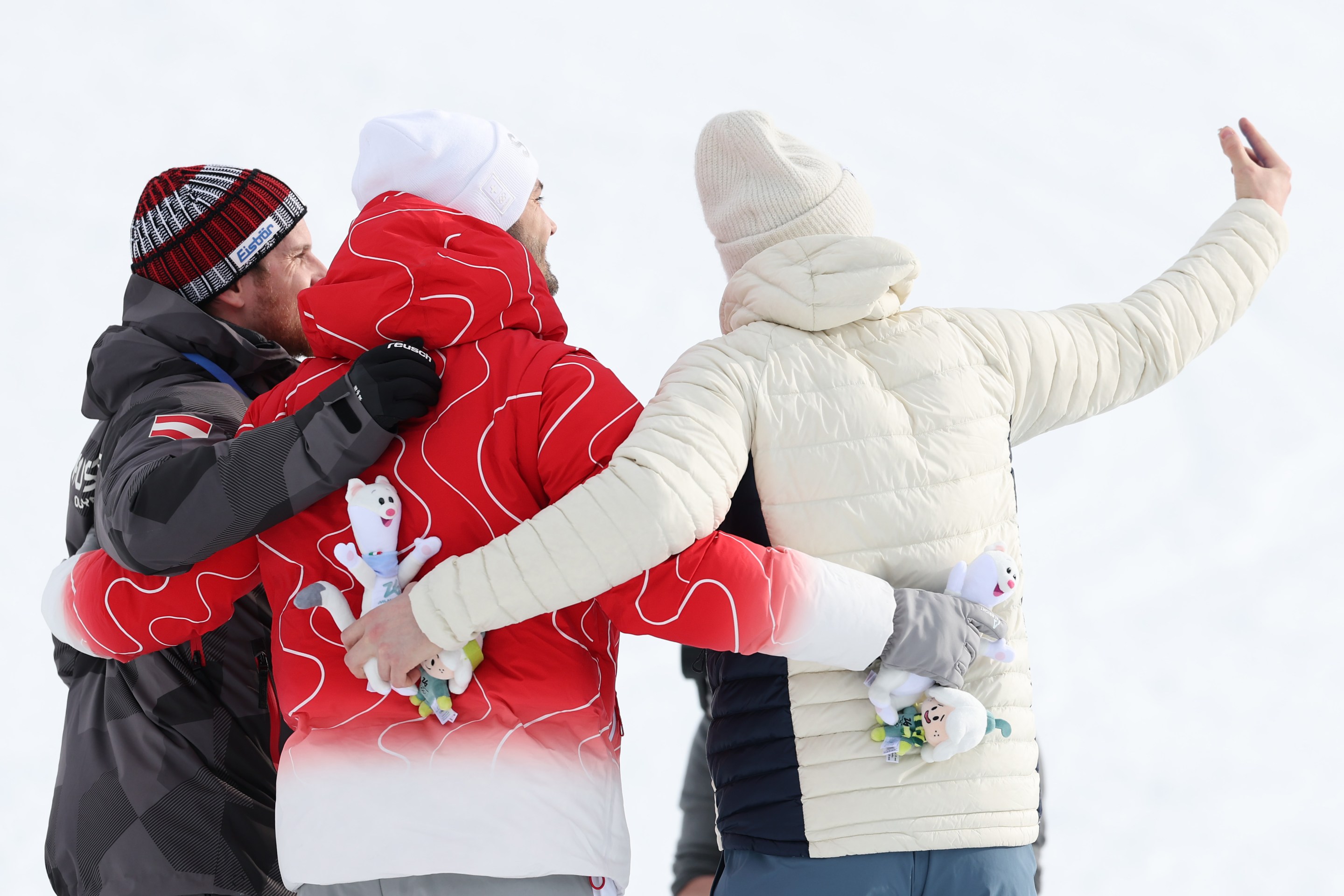About an hour before kickoff of Australia's opening match in this highly anticipated home World Cup, Aussie striker Sam Kerr announced that she'd injured her calf in training on Wednesday and wouldn't be available to play in the game. Shortly thereafter, the team confirmed the news and added that Kerr will be held out of the first two group-stage matches, after which they'll reassess her status. Before a ball had even been kicked, Australia fans knew the news of the day, and that the news was bad.
It's hard to overstate Kerr's importance to the Matildas. She is the national team's star player but is also one of the true superstars of the whole sport. If Australia is comprised of many solidly good players who raise the team's floor, making it one of the better national teams in the international game, then it is Kerr who is the difference maker, the player whose explosive talent allows her Australian fans and teammates to look up and expect to see the sky where a ceiling might otherwise be. Kerr is why there are legitimate if still improbable hopes that Australia might win this tournament. Kerr both brings about Australia's pressure and is tasked with relieving it—a duty for which, by talent and disposition, she would seem uniquely well-suited. With Kerr, Australia is a real contender. Without her, Australia is something else.
And so the Matildas, in front of a record 75,000 excited and expectant fans, had to take the field against Ireland, the "weakest" team in what is a devilishly competitive group, without their leader and biggest weapon. Already facing pressure as tournament hosts and title hopefuls, Kerr's absence only added to the strain. Lose, and it would feel like the Australians' tournament was starting to end before it really even started. They'd have handed three points to Ireland ahead of matches against the feisty Nigerians and the hungry Canadians, with an embarrassing group-stage exit feeling increasingly, terrifyingly near. But win, and they could release a huge collective sigh, encouraged by doing the job without Kerr while also giving them a better chance at getting their star back in time to do what they've came for. Fortunately for them, the Aussies won.
As implied in the 1-0 scoreline, Australia's win over Ireland was hardly resounding. The match demonstrated exactly what Australia is without Kerr: a solidly good team, capable of keeping the clamps on a team like Ireland for the majority of the match, but without that special something that converts spells of control into goals and easy wins. The star of the show was the Matildas' defense, in particular defensive midfielder Katrina Gorry. She was everywhere, snuffing out all the potentially dangerous counter-attacks the Irish managed to mount when their deep and compact defensive block forced the Aussies into a turnover. In addition to Gorry, left back Stephanie Catley was the one who stepped up to take and convert the decisive penalty kick that gave Australia the win.
The pattern of the match didn't change all that much from the first minute until about the 70th: Australia controlled the ball safely and didn't have much trouble working it up the pitch, but could hardly create much actual threat close to Ireland's goal; the Irish, for their part, were content to sit deep, stymie Australia's attack, and look for quick counters when the Aussies lost the ball, though Ireland's poor final passes and Gorry's defending meant most of those counters died before they developed any real teeth. For the first 70 minutes, Australia took 10 shots to Ireland's one, but of the 11 attempts only Catley's penalty was on target.
Towards the end of the match, Ireland started to apply some actual pressure on the Australian back line. By that point the Irish knew they needed a goal, so they started sending more bodies forward, which helped them elongate those attacks that had previously stalled out. In the last 20 minutes, Ireland fired at Australia's goal seven times. But for some weak and inaccurate shooting, the Irish could've easily come away with an equalizing goal for their efforts. Australian fans might've hoped that Ireland pushing forward would open more lanes for the Matildas to launch some counters of their own, but outside of a single three-shot flurry in the 82nd minute, Australia never looked like punishing Ireland's adventurousness. When the whistle finally sounded and the Aussies on the pitch and inside the stadium could finally shout in joy having secured the win, from afar it felt more like relief than triumph.
Nevertheless, Australia's only goal once it became clear Kerr wouldn't play was to win, not to look good doing it. In the best of circumstances it would've been incredibly difficult for the Matildas to realize expectations by winning the World Cup, even on home soil, even with a fully healthy Kerr. Without Kerr, it becomes hard to even make it out of this group. But rather than succumb to the pressure, Australia answered the challenge and got a big win, giving the team's secondary players some much-needed confidence, and giving Kerr time to heal and return to be the hero they'll need.






